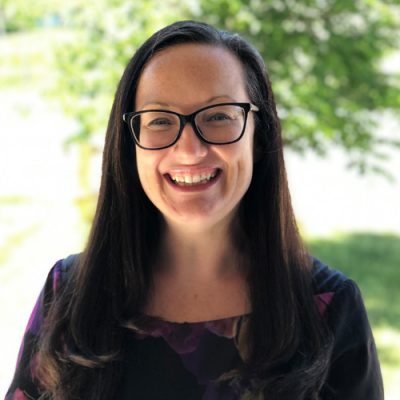The Environment and Sustainability Core Values at Sprott
“Passion begins with a burden and a split-second moment when you understand something like never before. That burden is on those who know. Those who don’t know are at peace. Those of us who do know get disturbed and are forced to take action.” Wangari Maathai, Nobel Peace Prize winner
One of the grand challenges facing humanity today is how to live symbiotically with our natural world; to live with a balanced mindset that recognizes the importance of preserving and maintaining our planet because it is essential to our survival. This mindset functions when our altruistic side is triggered yet blinded when we allow our selfish side to dominate—such as in advanced nations where materialism promotes self-indulgences. The former mindset fosters solutions and a devotion to collectivism; the latter tends to devoid our lives of what is truly important—the sustainability of our environment that we are inherently dependent on. It is therefore critical that those who are awakened by this forgone conclusion stay tuned to change, open to change, and to know that we are truly capable of great things. We can devise solutions and save our planet from further harm. We just need to take a moment to listen.
Communicating the problems—and the solutions—is arguably the biggest barrier we, as a society, face. How do we inspire over 37 million Canadians that we must act now—both individually and collectively? Carleton University is listening and taking action. The university has made sustainability and well-being one of its key mandates.
“Together we will strive for wellness and sustainability—for individuals, for communities, and for our planet.”
And the Sprott School of Business has tremendous capacity to see this vision through with the power of interdisciplinary collaborations and a ton of passion.
The leaders and faculty at Sprott know that they have a large role to play in being agents of change—being accountable for sustainability pedagogy and fostering the creation of future leaders. Moreover, the researchers at Sprott recognize that it is key for businesses and policymakers alike to take a lead role in shifting the landscape of its environmental and social responsibilities. Sprott understands that the way we think about business must change, including adopting a multidimensional approach to business models.
The faculty at Sprott are tackling environmental issues in business with three central strengths:
- Visionaries who approach their research in unique and novel ways, challenging the status quo
There is a wonderful cross-pollination of talents where faculty not only tackle issues across many research areas within the business arena that foster a highly collaborative milieu, but look to expertise outside the business arena, such as other valuable disciplines, organizations, or government sectors.
- An immense amount of industry experience and diverse knowledge
All the faculty whose research focuses on sustainability have experienced first-hand the challenges that organizations face with respect to environmental accountability. With valuable insights and in-depth knowledge, these faculty can tackle real-world business challenges to create practical, effective solutions.
- Believing that one of their primary roles is to serve their students
The faculty take action to ensure that their knowledge is shared to empower their students. Recognizing that their students are the leaders of the future, the faculty know that it is essential to foster and challenge the students in ways that prepare them with a multidimensional perspective of business—an economy that is fair and equitable and one that adopts business models that include more worldly perspectives of sustainability.
Patrick Callery

Patrick Callery (Assistant Professor, Strategic Management), focuses his research on two key areas of sustainability in business.
His first area examines the corporate strategies and communications created to handle the risk management related to climate change and carbon emissions to determine what firms do to mitigate loss of profits, while at the same time remaining committed to high standards of environmental performance. Callery is examining how corporate carbon emissions reduction initiatives (for example, the Canadian federal carbon tax), along with changing public perceptions of corporate contributions to climate change, position firms’ success in new regulatory environments. Callery aims to help businesses establish a best-practices approach—a “practice what you preach” goal in the way of influencing policies to create a more genuine and transparent disclosure profile and to reduce illegitimate methods.
Secondly, Callery is exploring new territory in green innovation and strategies for environmentally focused businesses to succeed. Callery recognizes that there is another way for businesses in the renewable energy industry to be successful and is passionate about supporting these novel approaches and new technologies in environmental innovation.
Leanne Keddie

With years as an accountant Leanne Keddie (Assistant Professor, Accounting) recognized a concept that was being overlooked by the accounting world: The importance of linking sustainability and accounting. Keddie is helping large corporations rethink how to incentivize executives to effectively and genuinely integrate corporate social responsibility (CSR) issues in their business models. Compensation linked to CSR is a relatively new way of thinking and Keddie’s goal is to bring out the best in high-level executives and board of directors by providing effective strategies and tools. And this will be a game-changer.
“Sustainable accounting—it’s a revolutionary concept. The big goal is to differentiate companies that want to do better and provide them with the tools and guidance to help them achieve this.”
Irene Lu and Ernest Kwan

Irene Lu (Associate Professor, Marketing) and Ernest Kwan (Assistant Professor, Supply Chain Management) are combining their areas of expertise to explore a very novel area of ecologically responsible consumption. Repurposing goods is an increasingly popular consumer product; defined as the transformation of old products into new products of greater value that serve a different function. Repurposing is a key strategy because it reduces waste and promotes ecological sustainability. Lu and Kwan’s research will shed light on all aspects of why people buy and sell repurposed products, with the goal to empower retailers and policymakers on how to effectively market these types of products to promote a greener lifestyle and consumption habits.
Ruth McKay

Ruth McKay (Associate Professor, Management) is working with The Institute for Catastrophic Loss Reduction (ICLR), a non-profit research institute dedicated to improving the regulations and building code standards to create “climate-ready” housing. Her research taps into a unique facet of one of the consequences of climate change. As global warming results in more erratic weather issues, such as flooding, stronger winds, and fires, the response from the Government of Canada is to “…integrate climate resilience into building codes and standards.” This area of research will have far-reaching effects to sustainable and safe housing and contribute to recommendations for more comprehensive approach to climate-resilient construction technology in the building code.
The Sprott School is unique in so many ways—comprised of forward-thinking academics who, with a tremendous amount of experience and knowledge, and a collective lens of multidisciplinary experts—are taking action and tackling the world’s grand challenges with purpose—“…for individuals, for communities, and for our planet.” The leaders and faculty at Sprott are true visionaries. With this talent, the world is in good hands.